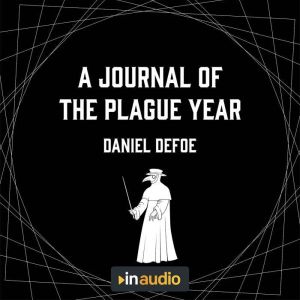

A Journal of the Plague Year
Author: Daniel Defoe
Narrator: Shea Taylor
Unabridged: 10 hr 10 min
Format: Digital Audiobook Download
Publisher: Spotify Audiobooks
Published: 11/17/2020
Categories: Nonfiction, History, European History
Synopsis
In 1665, London was struck by the bubonic plague, an epidemic that was the last major instance of the bubonic plague in England. This instance of the plague killed 100,000 people over a year and a half, and was transmitted through rats that ran through the city.
A Journal of the Plague Year was presented as an eyewitness account of the epidemic through the eyes of Londoners, though Daniel DeFoe was only a child during the plague. This book was likely based on the journals and writings of his uncle, but is written with factual specificity and authority that place it among other contemporary accounts of the year. Whether it should be called fiction or nonfiction has been widely debated due to its astonishing amount of factual details, but its ultimate fictitious nature of the authorship.
This journal, whether considered fact or fiction, remains relevant centuries later in a world experiencing similar events and casualties. The words within the journal echo the same sentiments as those experiencing the modern pandemic have felt and expressed. Delving into the observations of the past generations gives current readers a sense of shared suffering through the centuries, and may impart retroactive wisdom that is remarkably relevant for current times.

